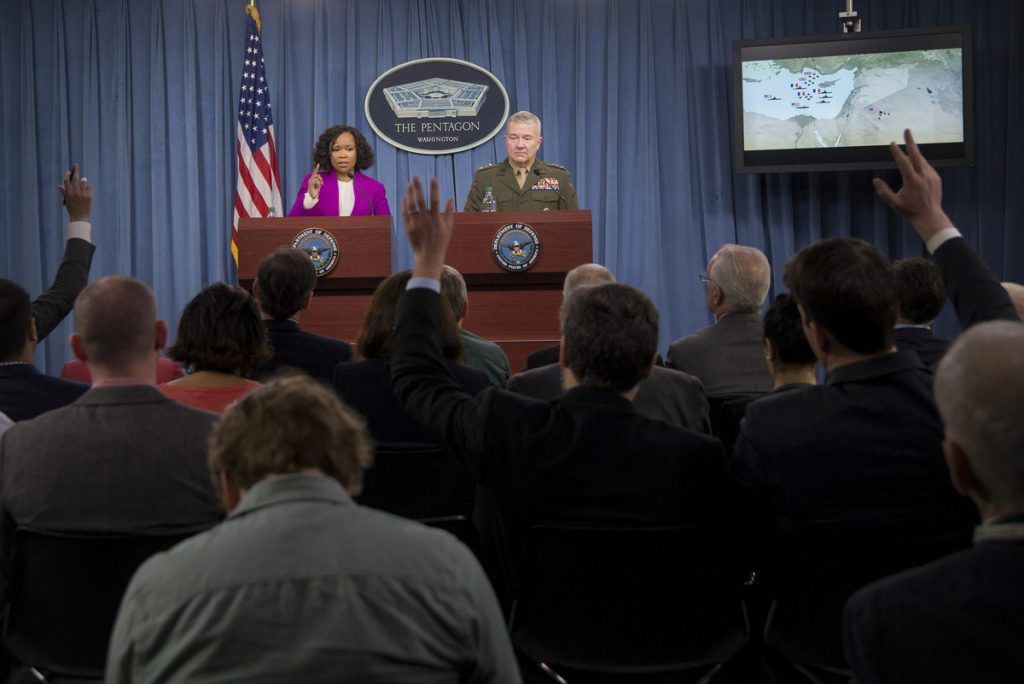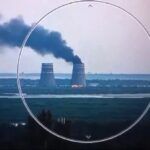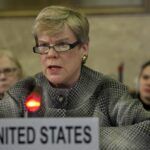Enough is enough: holding users of chemical weapons accountable
By Wardah Amir | April 23, 2018

The Syrian city of Douma, the British city of Salisbury, and Malaysia’s capital Kuala Lumpur are just three of many locations where chemical weapons have been used in the past year. According to two nongovernmental organizations present in Syria—the Syrian American Medical Society and the White Helmets—around 200 chemical attacks have been recorded in Syria since 2012, a staggering number for such a ghastly weapon. Each incident of chemical weapons use should be startling, not only because of the gruesome casualties but also because each attack is a grave violation of international law.
Despite the recent airstrikes on sites described by the Pentagon as “the heart” of Syria’s chemical weapons program, employing military options to maintain the norm against the use of chemical weapons is not the sole, or even the most effective, solution to the problem. Following the strikes, the Director-General of the Organisation for the Prohibition of Chemical Weapons (OPCW) said in a statement on April 18 that its team of investigators was unable to access the sites where chemical weapons were employed in Douma, because the reconnaissance team came under small-arms fire. (The investigators were finally able to visit one of the sites in Douma to collect samples on April 21, two weeks after the alleged chemical attack.) This is a clear indication that those perpetrating the chemical attacks wish not to be identified or held accountable.
Accountability is threatening to perpetrators. If consistent and effective, it is also the solution to end the use of chemical weapons.
Identified users of chemical weapons in Syria. In 2015, UN Security Council Resolution 2235 established the Joint Investigative Mechanism of the United Nations and the OPCW. This investigative mechanism concluded that Syrian government forces used chlorine as a weapon in three attacks in 2014 and 2015, and sarin in a 2017 attack; and that the Islamic State of Iraq and the Levant used sulfur mustard in two attacks in 2015 and 2016.
Unfortunately, the Joint Investigative Mechanism met its demise in November 2017 at the UN Security Council, when Russia used its veto to deny an extension of the mechanism’s mandate. With chemical weapons still being used in Syria, and strong ongoing disagreements regarding the parties responsible for the attacks, the investigative mechanism would have proven to be an especially useful tool to attribute recent chemical attacks, including the attack on Douma, to their perpetrators.
A promising partnership. In an effort to increase accountability for chemical weapons attacks, France launched the International Partnership against Impunity for the Use of Chemical Weapons in January 2018. With some 30 countries and international organizations as participants—including the United States, the United Kingdom, the OPCW, and the United Nations—the Partnership identifies and holds liable those who have engaged in chemical weapons use.
The Partnership’s website lists the names of individuals, groups, entities, or governments that have been sanctioned due to their links to chemical weapons attacks. Its purpose is to publicly name and shame those involved in the use of chemical weapons. The partnership is providing assistance to countries gathering information related to ongoing chemical weapons use, as well as updating its public list of culprits. The organization plans to use available mechanisms to sanction actors identified on the list. The group will also focus on capacity-building of states, so that perpetrators can be prosecuted through existing national legislation.
No impunity. The partnership is important because of what it stands for: no impunity for those who violate international law and use chemical weapons. It is important that states, nongovernmental organizations, and civil society rally behind the partnership. Collectively, the public list of perpetrators can be disseminated. Existing mechanisms and national legislation can be used to sanction and prosecute those on the lists.
Enough is enough. The users of chemical weapons must be held accountable. The constant desecration of international law must be stopped. The use of chemicals as weapons must be put to an end, once and for all.
Together, we make the world safer.
The Bulletin elevates expert voices above the noise. But as an independent nonprofit organization, our operations depend on the support of readers like you. Help us continue to deliver quality journalism that holds leaders accountable. Your support of our work at any level is important. In return, we promise our coverage will be understandable, influential, vigilant, solution-oriented, and fair-minded. Together we can make a difference.
Topics: Voices of Tomorrow















